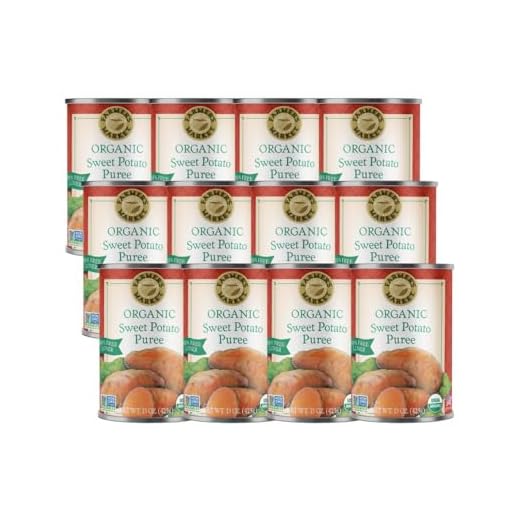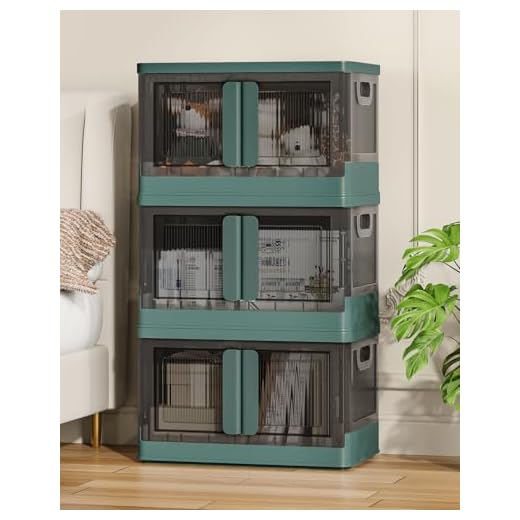



Sweet potatoes are a popular and nutritious vegetable that can be enjoyed in a variety of dishes. However, many people are unsure about the best way to store them. One common question is whether it is safe to keep sweet potatoes in the refrigerator. In this article, we will explore this topic and provide you with the answer.
Contrary to what you might think, sweet potatoes should not be stored in the refrigerator. The cold temperature of the fridge can have a negative impact on the flavor and texture of sweet potatoes. Cold temperatures can convert the starches in sweet potatoes into sugars more quickly, which can result in a sweet potato that is harder and less flavorful.
In addition to affecting taste and texture, refrigerating sweet potatoes can also lead to the development of an off-flavor. The moisture in the refrigerator can cause the sweet potatoes to become mushy and unhealthy. Therefore, it is best to store sweet potatoes in a cool, dark, and well-ventilated place, such as a pantry or a cellar.
It is worth noting that while sweet potatoes should not be stored in the refrigerator, they do have a relatively long shelf life. When stored properly, sweet potatoes can last for several weeks. Just make sure to remove any dirt or debris from the sweet potatoes before storing them and check them periodically for any signs of spoilage.
In conclusion, sweet potatoes should not be stored in the refrigerator due to the negative impact it can have on taste, texture, and overall quality. Instead, store them in a cool, dark, and well-ventilated place to keep them fresh and delicious for longer.
Sweet Potatoes and Refrigeration: Is It Possible?
Many people wonder if sweet potatoes can be kept in the refrigerator. Sweet potatoes have become increasingly popular due to their delicious taste and numerous health benefits. However, when it comes to storing sweet potatoes, many people are unsure about the best method.
The first thing to consider is that sweet potatoes are quite different from regular potatoes. They have a higher sugar content and a lower moisture content, which affects their storage requirements.
In general, sweet potatoes should not be stored in the refrigerator. The cold temperature of the refrigerator can cause the starches in sweet potatoes to convert into sugars more quickly, leading to a change in taste and texture. Refrigeration can also make sweet potatoes more prone to developing an off-flavor.
Instead of refrigeration, sweet potatoes should be stored in a cool, dark, and well-ventilated place. A pantry or a cellar is an ideal location for storing sweet potatoes. They should be kept at a temperature between 55-60°F (13-15°C).
It’s also essential to handle sweet potatoes with care when storing them. They should be stored in a single layer, and the ones with any bruises or damage should be separated from the rest. This prevents any potential spoilage from spreading.
If you want to extend the shelf life of your sweet potatoes, you can try curing them. Curing involves exposing sweet potatoes to high humidity and warm temperatures for about one to two weeks before storage. This process helps to toughen the skin, heal wounds, and convert some starches into sugars, enhancing the flavor.
In conclusion, sweet potatoes should not be stored in the refrigerator. To keep them fresh and flavorful, store them in a cool, dark, and well-ventilated place like a pantry or cellar. Proper storage conditions and handling will ensure that your sweet potatoes last for a more extended period.
Remember: keep sweet potatoes out of the refrigerator, and enjoy their delicious taste and health benefits for longer!
Benefits of Storing Sweet Potatoes in the Refrigerator
Storing sweet potatoes in the refrigerator can bring several benefits. While sweet potatoes are known for their long shelf life, refrigeration can help prolong their freshness and keep them tasting delicious.
1. Extended Shelf Life
Refrigerating sweet potatoes can help extend their shelf life. The cool temperature slows down the natural process of decay and helps prevent the growth of mold and bacteria. This means that you can store sweet potatoes in the refrigerator for a longer period without worrying about them spoiling quickly.
2. Maintains Nutritional Value
Storing sweet potatoes in the refrigerator can help preserve their nutritional value. Sweet potatoes are packed with essential nutrients such as vitamin A, vitamin C, fiber, and potassium. These nutrients are sensitive to heat and light, which can cause their degradation. Refrigeration can help slow down this process and ensure that you retain the maximum nutritional value of your sweet potatoes.
However, it’s important to note that refrigeration may cause some loss of flavor. The low temperatures can alter the natural starches in sweet potatoes, potentially affecting their taste and texture. To minimize this, it is recommended to store sweet potatoes in a cool, dark place like a pantry or cupboard if you plan to consume them within a week or two.
Overall, refrigerating sweet potatoes can be a great way to extend their shelf life and preserve their nutritional value. Consider your storage needs and preferences, and experiment with different storage methods to find the one that works best for you.
Potential Drawbacks of Refrigerating Sweet Potatoes
While it is technically possible to store sweet potatoes in the refrigerator, there are a few potential drawbacks to keep in mind:
1. Flavor alteration: Refrigerating sweet potatoes can alter their flavor and texture. The cold temperature can cause the starches in the potatoes to convert into sugar faster than usual, resulting in a sweeter taste. Additionally, the moisture in the refrigerator can make the potatoes mushy and less desirable in terms of texture.
2. Loss of nutrients: The refrigeration process can lead to a loss of some important nutrients in sweet potatoes. Vitamins such as vitamin C and B can degrade when exposed to cold temperatures over time.
3. Increased risk of rot: Sweet potatoes have higher water content than regular potatoes, which makes them more prone to rotting. Storing them in the refrigerator, where moisture levels are high, can exacerbate this risk. If one sweet potato begins to rot, it can quickly spread to the others in close proximity, resulting in wasted produce.
4. Ethylene sensitivity: Sweet potatoes are sensitive to ethylene gas, which is produced naturally by certain fruits, such as apples and bananas. When stored in the refrigerator alongside these ethylene-producing fruits, sweet potatoes can spoil faster.
Overall, while refrigeration may be a convenient way to extend the shelf life of sweet potatoes, it’s important to consider the potential negative effects on flavor, texture, nutrient content, and the risk of rotting. It’s best to store sweet potatoes in a cool, dry, and well-ventilated place away from ethylene-producing fruits to maximize their quality and longevity.
Best Storage Practices for Sweet Potatoes
Sweet potatoes are a nutritious and delicious root vegetable that can be stored for extended periods if properly handled. To ensure the best quality and taste, it’s important to follow the recommended storage practices. Here are some tips:
Choose the Right Storage Location
The ideal storage location for sweet potatoes is a cool, dry, and dark place. Avoid storing them in the refrigerator, as the cold temperature can alter the taste and texture of the sweet potatoes. Instead, opt for a pantry, cellar, or a dry cabinet in the kitchen.
Handle with Care
Handle sweet potatoes gently to prevent bruising and damage. Even a minor bruise can lead to rot, so it’s important to be careful during transportation and storage.
Do not wash sweet potatoes before storing. Moisture can promote mold growth and cause the potatoes to spoil quickly.
Keep them Dry
Moisture is the enemy of sweet potatoes. Make sure the storage area is free from humidity, which can cause the potatoes to rot. Proper ventilation is also crucial to prevent moisture build-up. Avoid storing sweet potatoes in plastic bags, as they can trap moisture and accelerate spoilage. Instead, use a breathable storage bag or a cardboard box with holes for air circulation.
Regularly Check for Spoilage
Inspect your sweet potatoes regularly for any signs of spoilage. Remove any potatoes that show signs of rot, mold, or sprouting to prevent them from spoiling the rest. It’s essential to maintain the quality and safety of the stored sweet potatoes.
Remember, when stored correctly, sweet potatoes can last for several weeks to several months, depending on their condition at the time of storage. Follow these best storage practices to enjoy the best quality sweet potatoes throughout the year!
Alternative Storage Options for Sweet Potatoes
Sweet potatoes can be stored for longer periods of time by utilizing alternative storage options that provide optimal conditions for preservation. These options can help extend the shelf life of sweet potatoes and maintain their freshness and flavor.
1. Cool, Dark Place
A cool, dark place such as a pantry or cellar is an ideal location for storing sweet potatoes. The temperature should be around 55°F (13°C) as exposure to temperatures below 50°F (10°C) can cause the sweet potatoes to develop a hard center and an unpleasant taste.
2. Ventilated Containers
Storing sweet potatoes in well-ventilated containers can help prevent them from rotting. Avoid using plastic bags or airtight containers, as these can create a humid environment that promotes moisture buildup and decay. Instead, opt for mesh or woven baskets that allow air circulation.
Additionally, it is important to regularly check the sweet potatoes for any signs of spoilage and promptly remove any damaged or rotting ones to prevent the spread of decay.
By utilizing these alternative storage options, you can keep your sweet potatoes fresh and delicious for a longer period of time.
FAQ
Can sweet potatoes be stored in the refrigerator?
Yes, sweet potatoes can be stored in the refrigerator, but it is not recommended. The cold temperature can alter their taste and texture.
How should sweet potatoes be stored?
Sweet potatoes should be stored in a cool, dry, and well-ventilated place, such as a pantry or cellar. They should not be stored in the refrigerator.








